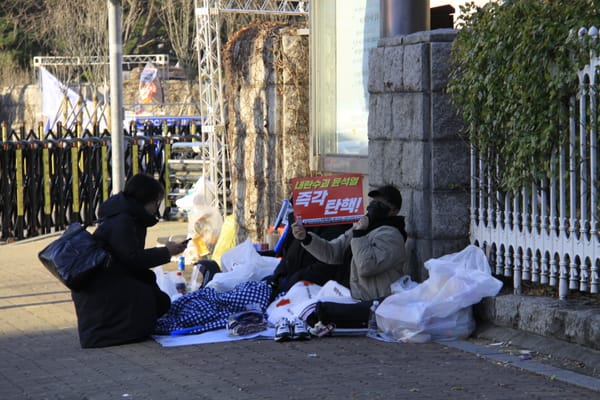Asia Undercovered Round-up: 9 August 2022
This week: Climate disasters ignored (again) in Asia, China’s party congress, and how Indian police are using tech to plan false evidence on victims phones.
Undercovered last week
There's a new, temporary President in Sri Lanka, Ranil Wickremasinghe, who, assuming nothing gets in the way, will rule until the next election in late 2024. He's a controversial choice, seemingly lacking legitimacy, and is already facing pushback from voters (Neil DeVotta, East Asia Forum).
Did you see our Breaking News Backgrounder on the Sri Lanka crisis and how global media has miscovered it?
While the entire world knows about the heat waves in Europe and the United States, there is little to no attention about climate-connected natural disasters in Asia. For example, there’s another round of floods affecting India and Bangladesh, impacting four million (Rafiqul Islam Montu, DownToEarth).
In China, though, it’s a different story. A year after horrific floods hit Henan, killing nearly 400, the government is censoring memorials and restricting even the placing of flowers by locations where people died. It seems they’d rather people forget this disaster – and the state’s failed response (Oliver Young, China Digital Times).
Of course, this is the same government who treats 75-year-old women protesters as criminals.
Meanwhile, in Indonesia, former President Megawati Sukarnoputri made a racist joke about ethnic Papuans, who are darker skinned and living under repression for decades. In this illuminating piece, Tamara Soukotta explores how this joke is not an anomaly, but in fact exposes the classist and racist views of the political elite (Indonesia at Melbourne).
Meanwhile, the country is looking to update its criminal code, which includes numerous clauses from the colonial era. Eva Kusuma Sundari cautions that this could risk backsliding on hard-won freedoms (The Diplomat).
An update from Myanmar, which has fallen far out of the headlines over the past year. This piece in Reporting ASEAN takes a different angle, exploring the issues facing environmental protection amidst the post-coup, political and social crisis,.
For Nikkei Asia, Tobias Harris makes an interesting argument - that recently assassinated Shinzo Abe's legacy may be the rightward, militaristic shift of his LDP party.
Electoral Politics
The biggest political event of 2022 in Asia may be China's coming Party Congress, which may see incumbent dictator (and perpetrator of Genocide) Xi Jinping stake a claim on a third term. The team at Marco Polo have put together a great primer on the congress, and the key potential outcomes.
And a huge decision is on the plate for Indonesia's largest part, the PDI-P, as for who it will nominate for the 2024 Presidential election; Nepotism, or political pragmatism (Jefferson Ng, The Diplomat).
Geopolitics
For Global Asia, Rajaram Panda looks at the impact of the recently publicized security pact between China and the Solomon Islands, which, until recently, recognized Taiwan, and what the emergence of great power geopolitics in the Pacific means.
Is Indonesia, finally, going to start standing up to China? Muhammad Zulfikar Rakhmat argues that political pushback is increasing, due to the Uyghur repression, encroachment in the South China Sea, and more (Southeast Asia Globe).
Solutions Stories
Witness Asia released this wonderful interview with filmmaker Irene Yuliana Fatagur, a Papuan who is documenting the fight for their land and dignity, interspersed with powerful visuals. A great, hopeful read.
Reporting Done Right
This piece by Andy Greenberg in Wired digs into how police in India have been planting fake digital evidence on victims computers in order to arrest them. It both explores the technical and social side of this, including giving readers context into the deteriorating situation for human rights in India. A great example of reporting done right.
Asia Undercovered: Round-ups and in-depth analysis of the news, events, trends and people changing Asia, but not getting enough attention in the US media.



